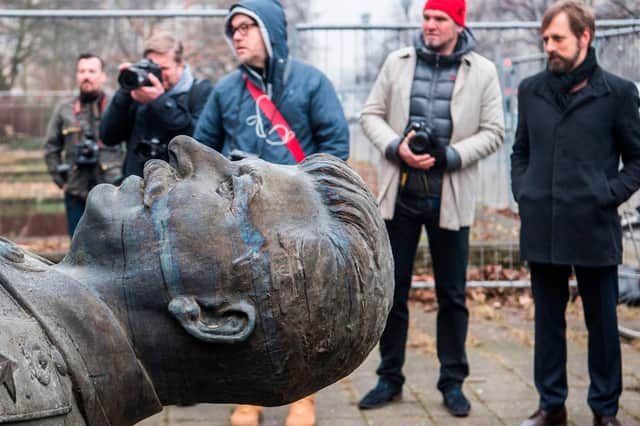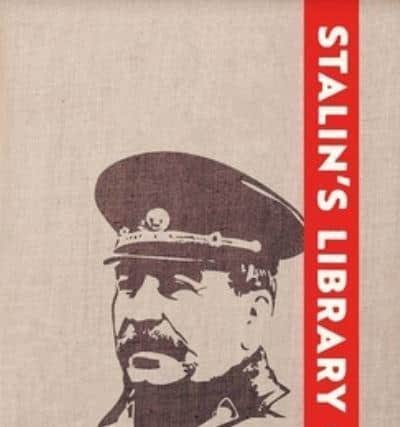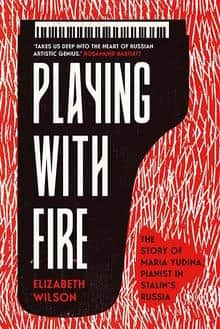Book reviews: Stalin's Library | Playing With Fire: The Story of Maria Yudina, Pianist in Stalin’s Russia


Writer Geoffrey Roberts is best known for his work on Stalin and other Soviet leaders at war, but his new book, Stalin’s Library, offers a new perspective on the dictator: his intellectual curiosity, his reading, his studying and his accumulation of 25,000 books along with journals and pamphlets.
The books were kept in an outbuilding at Stalin’s dacha with all the volumes catalogued and shelved according to subject matter, although there were separate sections for books by the major Marxist thinkers and Politburo members. He annotated his books extensively and marked spelling and grammatical errors. Favourites on his fiction shelves included Balzac, Cervantes, Shakespeare’s plays and Guy de Maupassant’s short stories. The only agreeable room in the dacha itself, noted one observer, was the library, and particular books were brought to him at his request.
Advertisement
Hide AdRoberts uses the library as a way in to a wider discussion of Soviet arts and culture. Stalin had his own private cinema, enjoyed Westerns and read screenplays, often demanding to see the writers and directors to harangue them about the political inadequacy of their work before any filming took place.


After his death, and the campaign of de-Stalinisation that followed, the library was dispersed. The task of tracking down what happened to everything is partly a trigger for Roberts’ book, and also part of its content.
Published on the same day by the same publisher is another book featuring Russian art and artists of the Soviet era, Elizabeth Wilson’s biography of the pianist Maria Yudina, Playing With Fire. This also has a link with a Stalin story, albeit tangential and ultimately unproved. The story goes that listening to the radio one evening, Stalin heard Yudina playing Mozart’s Piano Concerto No 23 and asked Radio Moscow for a recording. The broadcast had been live, so the musicians were recalled to record the piece, and an outraged Yudina slipped a note into the sleeve denouncing Stalin. Wilson convinces the reader that the story is untrue, and the rigorous research she deploys to show this is evident throughout her book.
Wilson follows Yudina carefully from her birth in what is now Belarus to her death in Moscow in 1970. The threads of her life interweave to illustrate not only an astonishing career, but also aspects of Russian life and culture before and during the Soviet era. Yudina was a religious woman, born into a Jewish family, converting to Orthodox Christianity when she was 20 and becoming active against aspects of State control of the Church during the 1920s and 30s. "I know only one way to God: through Art,” Yudina said.
During the Second World War she was at the height of her fame, playing for troops, submarine crews, in hospitals and for the besieged citizens of Leningrad, where she arrived at the military airport with a huge kitbag filled with provisions for those in need, and declared, “the Muses…are not silent in Leningrad". She was close to Shostakovich, and Boris Pasternak gave his first reading of Dr Zhivago in her Moscow flat. Clearly, this book is filled with dramatic experiences and detail, but Wilson’s craft as a storyteller ensures that it is a captivating read. She also provides us with four pages of acronyms, revealing some obscure Soviet organisations, and a discography as well as a bibliography.


Stalin’s Library: A Dictator and His Books, by Geoffrey Roberts, Yale University Press, 268pp, £25
Advertisement
Hide AdPlaying With Fire: The Story of Maria Yudina, Pianist in Stalin’s Russia, by Elizabeth Wilson, Yale University Press, 331pp, £25
A message from the Editor:
Thank you for reading this article. We're more reliant on your support than ever as the shift in consumer habits brought about by coronavirus impacts our advertisers.
If you haven't already, please consider supporting our trusted, fact-checked journalism by taking out a digital subscription at https://www.scotsman.com/subscriptions